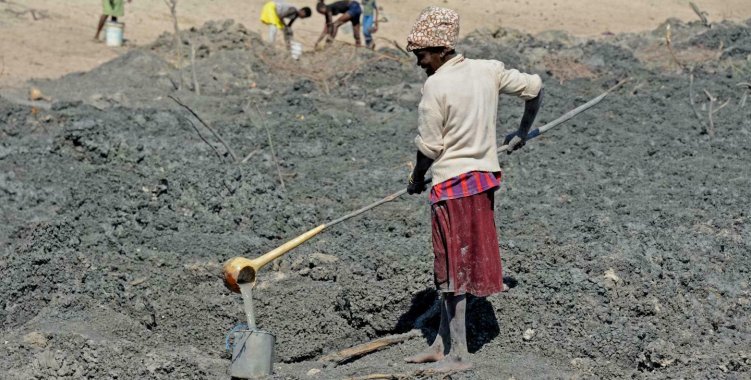Michele Mussoni, who heads the office of the United Nations agency, said that the drought had affected not only the southern provinces of Namibe, Huila and Cunene, but also Huambo, Benguela and Kwanza Sul, and that according to satellite data collected on rainfall and vegetation cover, it was affecting around 3.5 million people, or around 10 percent of the Angolan population.
The leader did not reveal figures about the people who have died due to hunger caused by drought and the children who suffer from malnutrition, because an assessment is still being made to collect more reliable data about food insecurity.
This assessment will also serve as a basis for the process of mobilizing resources to meet the needs of WFP, which is currently focused on technical assistance programs to the government of Angola.
Michele Mussoni explained to Lusa that WFP is not directly involved in food distribution because a state of emergency has not been declared.
"The government is considering declaring a state of emergency, is consulting internally and talking with us in this sense," he indicated.
Michele Mussoni considered the situation "very worrying" and stressed that WFP in Angola needs more resources to expand its projects in the drought-affected provinces, and is working with other organizations in the task of mobilizing these resources and, together with the government, identifying structuring measures that can minimize or mitigate the effects of these chronic droughts in the future.
The WFP official pointed out that the drought is affecting agricultural production, which has fallen considerably because it depends almost exclusively on rainfall, and has also had repercussions on livestock production: "cattle grazing and watering have been left without water in some regions, which are the main sources of livelihood for rural families in Angola," he said.
"Unfortunately, many families face a situation of acute food insecurity due to the reduction in the quantity and quality of their food consumption," he added.
To survive the crisis and save their animals many families have migrated to neighboring countries such as Namibia, with at least about 800 people in these circumstances, estimated Michele Missoni.
With the prolongation of the drought, the WFP representative warns of the emergence of other problems in the community, in particular the increase in acute malnutrition, with particularly worrying consequences for children under five years old "who become more susceptible to disease."
Michele Missoni noted that this is a cyclical emergency, but that it occurs with increasing frequency due to climate change affecting various regions of Africa and the other continents and considered it important to implement some structuring measures such as the construction of infrastructure to ensure the availability of water for supply and for agricultural and livestock production.
The WFP specialist also addressed the importance of promoting the diversification of income sources and livelihoods to reduce dependence on agriculture and livestock so that families "can better withstand" in years of low production.
However, in addition to these medium and long-term measures, more immediate, emergency interventions need to be implemented urgently to reduce the effects of drought.
"Where levels of acute malnutrition are already quite high, there is a need for immediate intervention. Another immediate measure is to protect livelihoods, since when there is a food crisis families sell their assets to buy food, and in this way they lose all the animals they had, and this process is not conducive to fighting poverty," he stressed.







